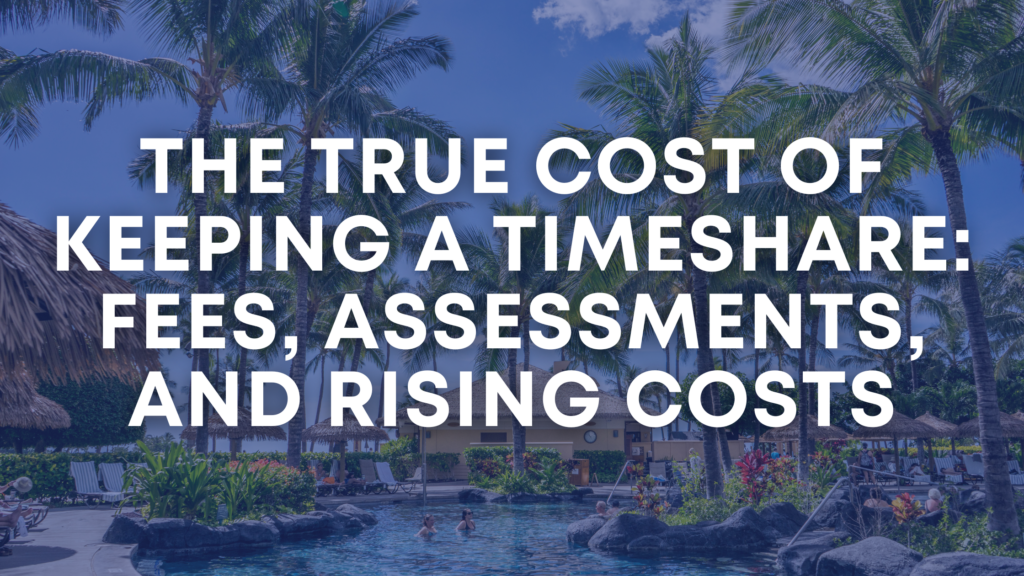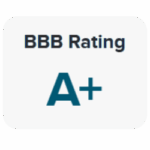Owning a timeshare can seem like a dream come true. It promises affordable vacations in desirable locations.
But is it as cost-effective as it appears?
This article will delve into the true cost of keeping a timeshare. We’ll explore fees, assessments, and the potential for rising costs.
We’ll also examine specific examples, such as Marriott timeshare costs.
By the end, you’ll have a comprehensive understanding of timeshare costs. This will help you make informed decisions about whether a timeshare is right for you.
Understanding Timeshares and Their Appeal
Timeshares are often viewed as a unique way to enjoy vacation property. They allow multiple individuals to own a share of vacation real estate. This typically involves owning the property for a specific period each year.
The concept is simple: you pay for the portion of time you wish to use. This model can appeal to those who enjoy visiting the same location annually. It offers the allure of a vacation home without full ownership costs.
Part of the appeal is the ability to access premium locations and amenities. Timeshare resorts often boast luxurious surroundings and activities. This can be appealing to many vacationers seeking high-end experiences.
However, understanding the financial implications is crucial. Many buyers are lured in by the idea of vacation ownership. They often overlook the ongoing financial commitments and potential rise in costs. It’s important to grasp the full financial burden before diving in.
The Initial Purchase: More Than Meets the Eye
Buying a timeshare might seem straightforward at first. Yet, there’s often more involved than just signing a contract. Potential owners should be aware of all initial costs.
Several fees come into play when purchasing a timeshare. Here’s a breakdown of the typical upfront costs:
- Purchase Price: The initial amount for acquiring the share in the property.
- Closing Costs: Legal and administrative fees related to finalizing the purchase.
- Down Payment: A portion of the purchase price paid to secure the deal.
These upfront costs can be significant. It’s vital to understand them fully before making any commitment. Many buyers finance their purchases, adding another layer of cost. Loan interest should also be factored into financial planning. This can inflate the overall expense and commitment.
Ongoing Financial Commitments: Maintenance Fees
Owning a timeshare comes with regular financial commitments. Among these, maintenance fees are the most significant. They can impact your yearly budget considerably.
These fees cover various aspects of property upkeep. Maintenance, repairs, and even on-site amenities depend on these funds. They ensure the property remains in good condition for all owners.
Here’s an overview of what maintenance fees might include:
- Repair Costs: Regular fixing of wear and tear issues.
- Landscaping: Maintenance of gardens and outdoor areas.
- Staff Salaries: Paying employees who manage and maintain the property.
- Utilities: Covering basic utility costs like water and electricity for shared spaces.
- Insurance: Property insurance to protect against damages or unforeseen events.
Every year, owners must pay these fees, which can increase over time. Inflation and rising operational costs often drive these hikes. For some, this can lead to unexpected financial strain.
It’s crucial to account for potential increases when budgeting for a timeshare. Planning with a flexible budget helps avoid surprises. Knowledge of these costs ensures you’re prepared for all eventualities. This awareness empowers better decision-making for prospective buyers.
Special Assessments: The Unpredictable Costs
Special assessments can catch timeshare owners off guard. Unlike regular maintenance fees, these are not predictable. They arise from extraordinary expenses that go beyond usual upkeep.
Such costs might occur due to significant renovations or unexpected repairs. Natural disasters can lead to substantial property damage, requiring immediate action and funding. In these cases, timeshare owners share the cost burden.
The unpredictability of special assessments is a critical consideration. Knowing they exist helps prepare owners for potential financial challenges. It’s essential to inquire about a timeshare’s history of assessments before buying. This can reveal patterns that might suggest future costs.
Understanding the nature of special assessments enables better financial planning. Setting aside funds for these unexpected expenses can help mitigate their impact. Preparedness can provide peace of mind and ensure timeshare ownership remains a valued aspect of vacation planning.
The Impact of Rising Costs Over Time
Owning a timeshare can seem attractive initially, but rising costs can lessen its appeal. Maintenance fees, in particular, tend to increase over time. This can catch some owners by surprise if they are not prepared for these hikes.
Historically, maintenance fees have climbed consistently, often outpacing inflation. Several factors, like increased property taxes or utilities, contribute to these rising expenses. The result is a potential strain on finances, especially for long-term owners.
Here are some aspects that typically influence increases:
- Inflation and Cost of Living: As general living costs rise, so do associated timeshare expenses.
- Property Improvements: Renovation or upgrades aimed at enhancing the property may drive costs upward.
- Market Conditions: Economic shifts can affect operating costs, leading to fee adjustments.
Understanding these trends helps owners make informed decisions about their financial commitments. Staying informed about past fee trends offers insights into what might happen next.
Additional Financial Considerations
Beyond maintenance and assessment fees, there are other recurring costs that owners must take into account. These expenses can accumulate, adding to the financial burden of timeshare ownership. A clear understanding of these costs is essential for effective budgeting.
One significant cost is property taxes. Owners are responsible for their share of these taxes, which vary greatly depending on location. Some timeshare agreements bundle these into annual fees, while others itemize them separately. Regardless of how they are billed, they represent an unavoidable expense.
Utilities, too, form part of the ongoing costs. While usage may differ seasonally, owners must still budget for their share. These costs can fluctuate, impacted by changing fuel prices and local utility rates. It’s important to stay informed about these variations.
Timeshare exchange programs and club memberships offer flexibility but come at a price. Participating in these programs involves fees, often charged annually or per exchange. They are designed to provide value but can add up quickly if not carefully managed.
Here’s a summary of these additional costs:
- Property Taxes: Vary by location, sometimes bundled into annual fees.
- Utilities: Costs may vary, depending on fuel prices and usage patterns.
- Exchange Program Fees: Include annual charges and per-exchange costs, offering flexibility at a price.
These financial aspects, though sometimes overlooked, significantly impact the overall costs of timeshare ownership. Understanding them is key to gaining a full financial picture.
The Resale Market: Understanding Timeshare Value
Many timeshare owners find that selling their timeshare is challenging. The resale market is often saturated, causing prices to drop significantly. This depreciation means timeshares seldom retain their original purchase value.
Understanding timeshare value requires looking at several factors, including location and brand reputation. Properties in high-demand tourist areas may hold more value compared to those in less popular regions. Likewise, prestigious brands may offer some resale advantages due to their established reputation.
However, even desirable timeshares can lose value over time. This is mainly because of the ongoing costs associated with ownership, which can deter potential buyers. Timeshare resale values are typically much lower than the purchase price, and selling often involves additional costs like listing fees and agent commissions. For many owners, these realities lead to financial losses.
Hidden Fees and Fine Print in Timeshare Contracts
Timeshare contracts can contain many hidden fees. These fees often remain undisclosed until after the purchase. For example, owners may face charges for property improvements or special assessments, which can surprise unprepared buyers.
Understanding the fine print is crucial before signing any timeshare agreement. Contracts may have clauses about fee escalations or additional costs tied to ownership transfer. These clauses can affect overall ownership expenses, making careful reading essential to prevent financial surprises.
Prepaid fees and mandatory membership dues sometimes sneak into agreements. Buyers should seek clarity on all obligations before closing a deal. Consulting a legal expert can help to identify potential hidden costs and protect against unforeseen expenses. Such due diligence is key to avoiding the financial pitfalls buried in the fine print of timeshare contracts.
Marriott Timeshare Costs: A Case Study
Marriott timeshares are popular, yet they can be costly. The initial purchase price can range from thousands to tens of thousands. Understanding these costs is vital for prospective buyers seeking a premium vacation experience.
Moreover, Marriott timeshare owners face ongoing expenses. Annual maintenance fees and potential special assessments add to the financial burden. These costs, while providing luxury accommodations, can also strain a budget if not thoroughly anticipated and planned for. Insight into Marriott’s costs provides a clearer picture of timeshare financial commitments.
Exiting a Timeshare
Selling a timeshare is often far more challenging than buying one. The resale market is saturated, with prices typically falling well below the original purchase value. Depreciation is a harsh reality for most timeshare owners looking to sell.
Beyond the diminished market value, selling comes with additional hurdles. Legal and administrative costs—such as closing fees, broker fees, and potential penalties—can significantly cut into any financial returns. Complicating matters further, many timeshare contracts include restrictive clauses that limit transfer options, making the process even more difficult.
Rather than struggling through the complexities of the resale market or risking scams with unreliable companies, many owners turn to Lonestar Transfer. As a trusted leader in the timeshare exit industry, Lonestar Transfer offers a proven, transparent process to help owners legally and permanently exit their timeshare contracts.
Is a Timeshare Worth the Cost?
Owning a timeshare involves more than the initial purchase price. Ongoing maintenance fees, special assessments, and the inevitability of depreciation often leave owners questioning whether the investment is worth it. While timeshares can provide structured vacations and access to luxurious amenities, the long-term financial commitments can outweigh the benefits for many.
Why Choose Lonestar Transfer?
If the financial strain of timeshare ownership has left you seeking a solution, Lonestar Transfer is here to help. Unlike navigating the challenging resale market or dealing with costly exit scams, Lonestar Transfer offers a safe, reliable, and efficient way to exit your timeshare. With a strong track record and a focus on customer satisfaction, Lonestar Transfer ensures that owners can move forward without the burden of ongoing fees or contractual limitations.
Don’t let your timeshare hold you back. Trust Lonestar Transfer to help you regain financial freedom and peace of mind.











